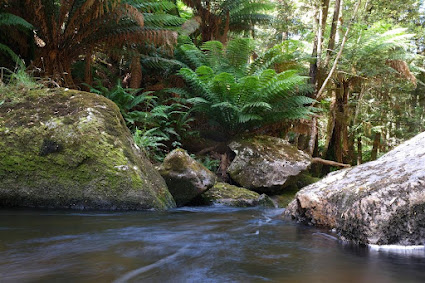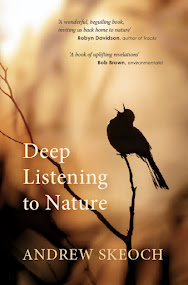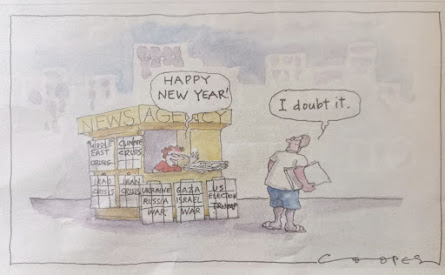Share your podcast
About
Rethinking Sustainability brings together the diversity of voices working to achieve a sustainable future.
Initially this will comprise ten-minute podcasts to this site and, when sufficient content is available, these can be packaged into 30 minute programs for the community radio network (CBAA) that comprises over 450 radio stations in Australia.
Rethinking Sustainability targets people who are interested in sustainability, but prefer shorter, more easily digested content. This however, does not necessarily require dumbed-down content. We assume the listener is already reasonably well informed. The short format can be challenging for more complex topics. In that case there may be scope to extend into multiple episodes.
There’s a huge range of possible topics. Anything that advances our understanding of sustainability gives us plenty of scope - from environment to social, personal, business and economic themes.
At this stage, depending on the availability of content, I’m hoping this will be a regular weekly podcast.
This is a community project that relies on your support. This is an opportunity to promote your work and (non profit) organisation. You don’t need to do much:
- Record a piece(s)
- Refer people who might like to do the same
- Promote our content
Let’s do this.
Rod Taylor Tayloram2000 <at> zoho <dot> com
Process
- Send a brief proposal of your idea, including your bio (half page max).
- I’ll reply whether the topic is suitable, possibly with comments and suggestions.
- Write the script and record; send to me via Dropbox or similar.
- I will do audio post-production including intro / outtro.
- I will Podcast and create a post on this site.
- Your help with promotion would be great.
Tips & Guidelines
Scripting
Before you start, choose a short, simple title that encapsulates what you want to say. This provides a focus and, if you’re unable to do this, it’s a strong clue that your idea needs more thought.
The average words per minute speaking is around 180, which means a 8-minute talk would be about 1,400 words. We have some flexibility with length, but do not exceed 8’ 30” (required for CBAA programming). If 8 minutes is not enough, your topic might suit multiple episodes.
There are two essential principles to writing a good script:
THE Listener: The power of radio and podcasting derives largely from the fact that the listener feels you are talking directly to them. It is a personal media, which means we say you and I. Although you often hear this on YouTube, etc, never say you guys, or hello everybody.
Narrative: Approach script writing as if it’s a three-part story. Do this even when the content is non fiction:
Beginning - make it abundantly clear why you are speaking. What are you going to tell your listener?Middle - explain your logic; how did we get here (or similar)
Ending - what conclusions do you want to leave the listener with, where do we go next?
It is essential that your logic flows in a clear, simple path. Our audience is not looking for esoteric, experimental art. Write shortish, simple sentences without too many adjectives or adverbs. The word “very” should be very rare. Metaphors and analogies are good.
Whether you actually use the words “you” and “I” is entirely your choice . You can make this a more personal perspective or slightly more formal. Up to you, either is perfectly valid.
If you do chose a more personal approach - it’s unlikely that your listener will be interested in your life story. However the personal perspective can be a powerful technique if you consider yourself a proxy for the listener. Your reaction to thoughts and events transmit to the listener, but avoid making the story about you.
Episode format
- Opening; I intro you (pls provide a 2-sentence bio) and your topic
- Your talk
- I back-announce you & preview the next episode
Reading
For most of us (including me) reading a script can be quite difficult because speaking this way is not like normal conversation. The most common mistake is to put emphasis on the first word in a sentence, then fall into a rhythmic, sing-song lubbidy lubbidy dah dah dah zzzzzzzzzz. Pretty soon you’ve lost your listener.
Yes, a script is like music, but think about the peaks and troughs, build pauses and inflections to highlight the climax. For example, where are the emotional highs in these words? Which words would you de-emphasise?
And in so doing I say to the Leader of the Opposition I will not be lectured about sexism and misogyny by this man.
I will not.
Inserting spaces or whatever emphasis marks you prefer in your script to help find the right voice when reading. I place line breaks into longer sentences where you want a pause or a difficult to speak word appears. Short sentences make it easier for you and your listener.
Tip: as you’re reading, imagine you are talking to a person in front of you. Some people (I don’t) like to speak to a stuffed toy or similar.
Recording
Ideally you have access to a reasonable audio recorder, however your laptop computer, tablet etc should work well using an external microphone. Recording directly onto a phone without an external mic might be acceptable, but not preferred. If in doubt, test it first.
Record a short piece then check the audio quality to make sure it sounds okay. Be careful where you place the mic - the best location depends on what you’re using, but typically it will be about a hand-span from your mouth. Place it slightly below because we don’t want “plosive” pops that typically occur with the letter “P”. Avoid extraneous noises such as paper shuffling, small people, chainsaws, house demolitions, etc.
Recording software
- Audacity (see below) or similar dedicated software.
- The standard Audio recorder on your device is probably okay.
- Zoom - you can record yourself in a solo call. Record locally to your computer/device rather than the 'cloud' option. This creates an "M4A" file which can be of reasonable quality.
Technical stuff
Contact me if you need help with this. If you really want to avoid the hassle, we can record via session, however you need to have a reasonable microphone.
- 6-8 minutes (allows 2 minutes for intro/outtro).
- WAV file preferred, however MP3 or M4A can be okay.
- Minumum 320kbps.
- Mono or stereo.
- A reasonable USB or 3.5mm jack microphone is not expensive.
- For editing, most people use Audacity (free) www.audacityteam.org
If you're can't manage the editing, I can do that.
Etc etc etc
As the Producer, I need to be confident that we comply with the community radio code of practice. Pretty obvious, but if in doubt I reserve the right to accept or reject material that doesn’t meet quality or community standards:





